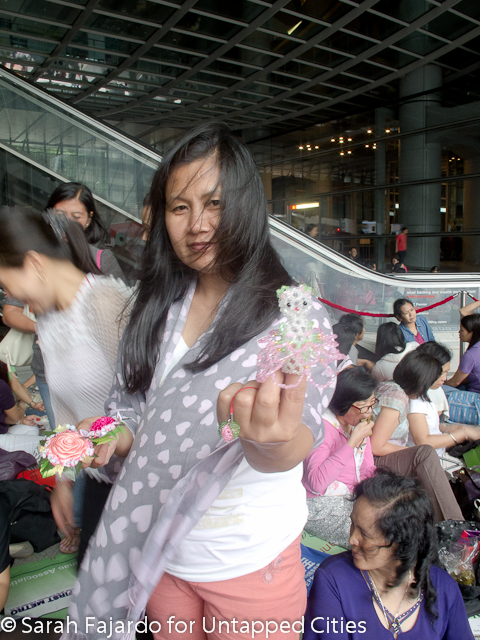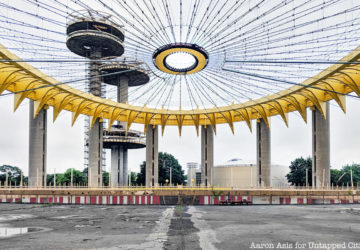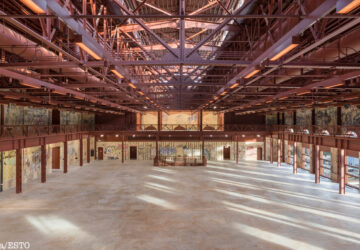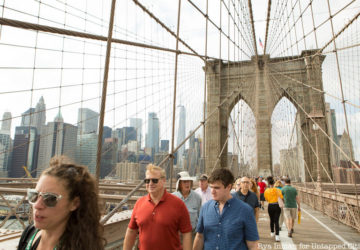Filipina domestic helpers gathering under the HSBC building in Hong Kong.
Open Door, a nonprofit organization that coordinates Hong Kong citizens committed to migrant workers’ rights, met a group of students and tourists in the neighborhood of Central on the first Sunday of June, amidst the bustling crowds of Filipina domestic workers gathering together to enjoy their weekly day off from work. Open Door is piloting cultural tours that are designed to introduce Hong Kong’s citizens to the cultures of the non-Chinese populations of the city. By promoting multiculturalism, Open Door is hoping to improve inter-ethnic relations in Hong Kong.
The tour guides opened with a brief explanation in English and Cantonese of Filipino history and the reasons that compelled 130,000 Filipina workers to migrate to Hong Kong. The labor export policy in the Philippines and the rising demand for domestic help in Hong Kong created a flow of migration that began in the 1970s and continues today. After providing political and historical information about the Philippines and Hong Kong, the tour turned to focus on the present day. The tour was led to neighborhood sites that hold historical and cultural relevance for Filipinas and for Hong Kong residents.
 Tour visit to St. John’s Cathedral, Central, Hong Kong.
Tour visit to St. John’s Cathedral, Central, Hong Kong.
At each of these various culturally relevant sites the tour guides discussed the many ways that Filipinas maintain their connections to the Philippines and their culture even while living away from home: a shopping mall that houses Filipino shops and food vendors, a cathedral holding masses in Tagalog and home to a non-profit organization providing social services for domestic helpers, and different gathering places in the Hong Kong financial district for Filipina organizations were among the places we visited. The many groups of Filipinas we met all follow the same system: women from specific areas in the Philippines meet in the same spot in the financial district every week, thus providing a specified meeting place for new and old migrants alike to maintain relationships from home, speak their own dialects, eat regional food and exchange news from their home region.
 Member of Las Filipinas showing the tour her crafts.
Member of Las Filipinas showing the tour her crafts.
A highlight of the tour was the interactions that we had with various groups of domestic workers – we were able to speak with people who showed us their crafts, discussed their experiences, explained their political work, and answered our questions. Filipina groups in Hong Kong are not only organized by geographical origin in the Philippines, but many meet weekly with other domestic helpers who share their political affiliations, craft interests, or religion. Las Filipinas described their crafts projects and tutorials to the tour, and discussed the seminars that they offer their members. Filguys discussed their work in promoting awareness of LGBTQQ rights and needs in Hong Kong. The tour ended with a sampling of homemade Filipino dishes and a discussion of the tour attendees’ impressions from the tour.
To participate in Filipino, Thai, or Indonesian cultural immersion tours, please [email protected].
Get in touch with the author @fafa.





